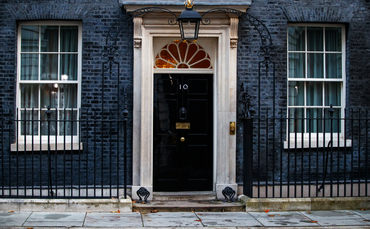Before the Prime Minister Rishi Sunak fought the rain and D:Ream to confirm that the UK will go to the polls on 4th July, yesterday also saw the release of the final pieces of written evidence fom social media companies to the Joint Committee on National Security Strategy (JCNSS) inquiry into defending democracy from electoral interference.
There is widespread acknowledgement of the escalating threat from malicious actors seeking to interfere in national elections, using emerging technologies. Rapid advances in these technologies make mis- and dis- information hard to detect, especially at speed.
Accountability challenges
The JCNSS, chaired by Dame Margaret Beckett MP, is particularly concerned about the lack of a unified approach among major platforms like X, TikTok, Snap, Meta, Microsoft, and Google. The committee says that these companies have developed individual policies based on their principles, resulting in siloed responses to the evolving threats posed by digital misinformation.
During a parliamentary session on 18 March 2024, a representative from Meta’s Oversight Board emphasised the need for transparency in handling and moderating information. However, the committee found that the companies’ varying and often opaque policies make accountability challenging.
Dame Margaret Beckett highlighted the issue, saying: “The Committee understands perfectly well that many social media platforms were at least nominally born as platforms to democratise communications: to allow and support free speech and to circumvent censorship. These are laudable goals – but they never gave these companies or any individual running and profiting from them the right or authority to arbitrate on what legitimate free speech is: that is the job of democratically accountable authorities.”
She further expressed concern over the uncoordinated and isolated efforts by these companies to address harmful content, especially given the significant impact of echo chambers created by algorithms. “The cover of free speech does not cover untruthful or harmful speech, and it does not give tech media companies a get-out-free card for accountability for information propagated on their platforms,” Beckett added.
Slow implementation of new powers
The JCNSS had expected more proactive engagement from these companies, particularly regarding an inquiry directly related to their operations during such a critical election year. Beckett remarked: “For a start, we expected social media and tech companies to proactively engage with our Parliamentary inquiry, especially one so directly related to their work at such a critical moment in our global history.”
The committee says it is also concerned about the slow implementation of new powers granted to Ofcom, the UK’s communications regulator, to counter online threats. These powers are unlikely to take effect before the upcoming elections, potentially leaving the democratic process vulnerable.
The JCNSS is calling for better cooperation and proactive measures from tech companies to address these threats. Beckett suggested that the Government’s Taskforce on Defending Democracy could serve as a coordinating body for these companies to share their knowledge on foreign interference techniques.

Wanda Parisien is a computing expert who navigates the vast landscape of hardware and software. With a focus on computer technology, software development, and industry trends, Wanda delivers informative content, tutorials, and analyses to keep readers updated on the latest in the world of computing.


